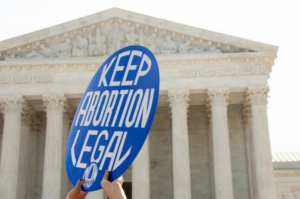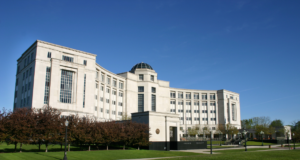Supreme Court hears arguments over California law allowing post-settlement lawsuits
3 min read
The U.S. Supreme Court heard oral arguments Wednesday in a California case challenging a law allowing residents to file lawsuits for labor violations after they’ve already agreed to settle the issue.
Vikings River Cruises Inc., an international ocean and river cruise line, is the petitioner in Viking River Cruises, Inc. v. Moriana. The petition asks the court to consider whether California’s Private Attorneys Generals Act (PAGA) runs afoul of the Federal Arbitration Act.
A former employee of Viking River Cruises, Angie Moriana, “agreed to resolve all future employment-related disputes with Viking via bilateral arbitration” before entering employment with the company, according to Viking’s petition for the court to hear the challenge.
After her employment ended, Moriana filed an action “seeking recovery of civil penalties” against Viking under PAGA. The law authorizes aggrieved employees to file lawsuits on behalf of themselves and other employees for labor code violations, according to the attorney general’s office.
In her claim, Moriana alleged numerous violations of the California Labor Code, invoking PAGA to seek relief on behalf of hundreds of “aggrieved current and former employees.”
Citing the original settlement, Viking sought to stop the PAGA lawsuit but was denied in a trial court. The court said Moriana’s “representative PAGA claims cannot be compelled to arbitration under California law.”
The California Court of Appeals affirmed this decision, and the California Supreme Court denied Viking’s request to take up the issue in December 2020.
The question in the case is whether a previous decision allowing a second court challenge under PAGA after a settlement breaks the Federal Arbitration Act. Viking argues that the FAA supersedes that California court precedent.
Its petition to the Supreme Court also claims that “when parties agree to resolve their disputes by individualized arbitration, those agreements are fully enforceable under the FAA.”
The California Business and Industrial Alliance, a group that opposes PAGA, submitted a friend of the court brief “to highlight just how harmful PAGA has been to employers and employees alike.” The group wrote that the Supreme Court should reject California’s existing legal justification for exempting PAGA from the terms of the FAA.
“Unless stopped by this Court, California will continue its crusade in favor of class-action style employment litigation,” the group wrote.
California Attorney General Rob Bonta filed a friend of the court brief in support of Moriana, calling PAGA “integral” to the state’s enforcement of labor laws. In his brief, Bonta wrote that “PAGA has served an important function in the adequate and fair enforcement of the State’s labor laws, supporting and supplementing direct government enforcement.”
Bonta also noted that PAGA plays a role in supplementing “enforcement mechanisms” regarding the state’s labor code. The attorney general said that the violations “aggrieved employees pursue through PAGA are often serious in nature, including wage theft and illegal working conditions.”
Justices will now deliberate the challenge and release their opinion later this year.
This article was originally posted on Supreme Court hears arguments over California law allowing post-settlement lawsuits







